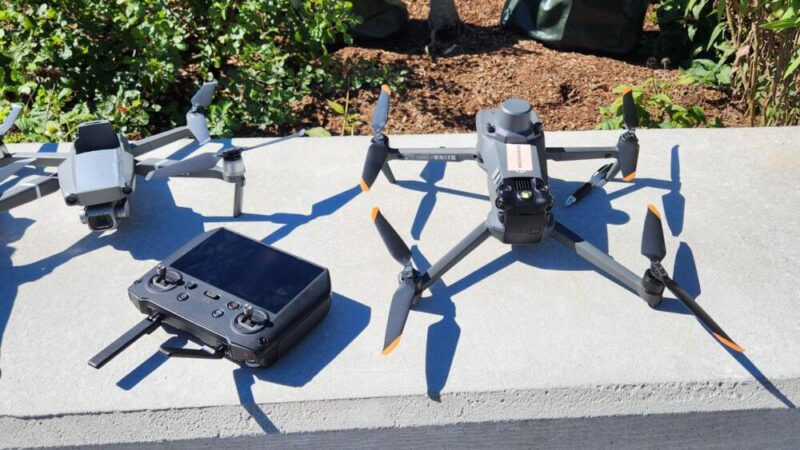Albuquerque celebrates the delicious prickly pear in annual festival
Transcript:
MARY LOUISE KELLY, HOST:
This weekend, cactus were cause for celebration in the New Mexico desert – a very specific, spiny succulent known as prickly pear. As KUNM’s Alice Fordham reports, it’s delicious.
(SOUNDBITE OF MUSIC)
UNIDENTIFIED MUSICIAN: (Singing in non-English language).
ALICE FORDHAM, BYLINE: In the courtyard of a historic adobe building in Albuquerque’s agricultural South Valley, the afternoon sun is beginning to soften. A band plays under a spreading cottonwood, and in the audience is Chrissy Byerlein, with a bright purple drink.
CHRISSY BYERLEIN: It’s bright and fresh and not too sweet but not too sour. It’s delicious.
FORDHAM: We’re at the annual New Mexico Prickly Pear Festival, with vendors selling mocktails, syrups, jams and more, all made from the ruby fruit clustered on cactus this time of year. Paula Padilla has a cooler of purple popsicles.
PAULA PADILLA: We try to source local ingredients that are in season, and it was obvious everywhere we drive around in the city, there’s prickly pear in bloom, so…
FORDHAM: Will Thomson started the festival in 2019. He used to mostly grow eggplants and tomatoes.
WILL THOMSON: I mean, I saw that lots of the things we use, use a lot of water, and we’re in a desert, and we’re in a desert that’s going to get hotter and drier.
FORDHAM: And there are many edible plants adapted to arid climates. Among them are prickly pears, plus their cactus pads, or nopales. They’ve long been eaten by Native people and form a big part of Mexican cuisine.
THOMSON: But we don’t eat them much here.
FORDHAM: To try to change that, he started this festival.
THOMSON: I really wanted to have a place to have discovery and joy around eating this fruit that people – you know, lots of people are familiar with, but they may not have tried.
FORDHAM: There are workshops teaching how to cultivate and prepare prickly pears. Lilia Avila is showing people how to make agua fresca.
LILIA AVILA: And then you just have – all this is just fruit, and it make a lot. And you just add water, ice and sugar. You want to add sugar?
FORDHAM: She says she just helps herself. It grows everywhere.
AVILA: Right there, every corner, we have some of those. Even my neighbor, and she know that I just go and steal it from her (laughter).
FORDHAM: And she knows all kinds of ways to eat it.
AVILA: I’ve done even salsa with it. I do salsa, and I just enjoy it. And then I eat it like a fruit, too, and I just put, like, tajin and chamoy on it.
FORDHAM: Across the way, Karen Bedell is selling not just prickly pear products, but mesquite bean flour, wolfberry jam, candied barrel cactus.
KAREN BEDELL: (Inaudible) total, and there is your two little bags. Enjoy.
FORDHAM: Most of it is gathered from wild plants.
BEDELL: There is more food in a desert than there is in a forest. We just – we’ve forgotten what’s there.
FORDHAM: And at a prickly pear lemonade stand is Liz McKenzie, who’s Navajo, or Dine, who says a big part of her business and this festival is encouraging that reconnection with native plants.
LIZ MCKENZIE: I’m Indigenous, so, I mean, it’s kind of just part of my culture in general to be really reading into, like, the land and living off the land and learning about the land and appreciating, you know, what it can give to you as long as you take care of it.
FORDHAM: I speak to several people who are indeed trying prickly pear for the first time. Kylie Tierney has not one, but two drinks on the go.
KYLIE TIERNEY: Well, of course, you have to. It’s the Prickly Pear Festival.
FORDHAM: She’s recently moved to the area.
TIERNEY: I actually do have some prickly pear in my yard, which I don’t know what to do with it, but maybe, hopefully today I can learn some insight as to how I can harvest it and what it can be used for.
(SOUNDBITE OF MUSIC)
FORDHAM: There’s just one catch – it is a cactus. To coax out that purple sweetness, most people need tongs, gloves and strainers to get rid of spines and gravelly seeds. But for all these people gathered under the cottonwoods, the juice seems to be worth the squeeze.
For NPR News, I’m Alice Fordham in Albuquerque.
(SOUNDBITE OF MUSIC)
UMass researchers are using drones to learn about traffic risks for cyclists in Somerville
The project, overseen by a UMass Amherst professor, will assess how well bike safety infrastructure is working and assess the likelihood of bicycle crashes with cars.
Pete Rose, all-time hits leader who was then banned from baseball, has died at 83
Baseball great Pete Rose has died. He's known as MLB's all-time hits leader, but was banned from the sport in 1989 for gambling. NPR's Ailsa Chang talks with author Keith O'Brien about Rose’s legacy.
GPB evening headlines for September 30, 2024
Georgia Power and Georgia EMC's say more than a half million of their electric customers remained without power this afternoon. The pace of recovery from Hurricane Helene in Georgia is only beginning to match the human need in hard-hit areas like Valdosta. Former president Donald Trump visited Valdosta today to see the damage done by Hurricane Helene and talk about relief efforts.
A Florida family figures out what comes next after losing everything in Helene
A family escaped drowning during Helene with six people and 20 cats on a roof. The storm took everything but their lives. They have no insurance or savings and scant income.
Crypto companies are spending big on the election
The crypto industry is pouring money into federal elections this year, hoping for a friendlier next president. Trump is embracing the industry -- and now Harris is also courting the crypto vote.
Who are the spenders behind (and against) the Massachusetts ballot questions?
Several Massachusetts ballot questions are shaping up to be expensive, competitive contests. Here's a quick breakdown of the people and groups financially backing the campaigns for and against each measure.



